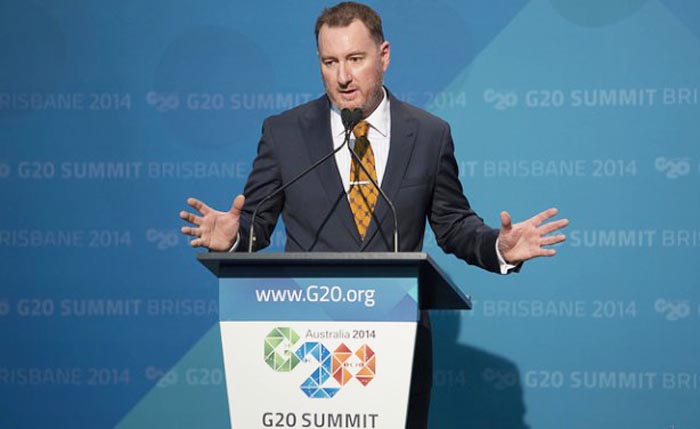On the 10th anniversary of the adoption of the Comprehensive Africa Agriculture Development Programme (CAADP), the African Union (AU) decided to declare 2014 as the Year of Agriculture and Food Security in Africa.-By Mohamed Ould Abdel Aziz
There is much to celebrate: agricultural production in Africa has risen steadily over the last 30 years and its value has almost tripled, showing an increase that exceeds the growth rate for global agricultural production over the same period – almost identical to that of South America and below but comparable to growth in Asia, based on statistics from the New Partnership for Africa’s Development (NEPAD). More than 530 million Africans depend fully or partially on agriculture for their livelihood.
Africa’s agricultural opportunities are tremendous. Beyond the political will the AU decision represents, it stems from a widespread consensus among African policymakers, scientists, the private sector, civil society and development partners that Africa can – by adopting an agenda to transform agriculture – unleash its enormous potential to end hunger, create jobs and eradicate poverty. Not only has Africa the potential to feed itself, but also to become a major food supplier for the rest of the world.
Three figures clearly show the immensity of this unrealized potential:
Firstly, it is estimated that Africa has around 600 million hectares of uncultivated arable land – roughly 60 percent of the global total.
Secondly, agricultural statistics indicate that 80 percent of the cultivated land in Africa is rain-fed and not irrigated.
Thirdly, according to recent data the productivity of agriculture in Africa is as low as one third of productivity in other parts of the world.
Therefore, by developing uncultivated arable areas, relying more on irrigation, and substantially enhancing agricultural productivity in a sustainable way, Africa can make a big leap in fighting hunger, unemployment and poverty. The World Bank estimates that Africa’s market for food could be valued at more than a trillion U.S. dollars by 2030, compared to $313 billion today. The private sector has an important role to play.
Nevertheless, many impediments hamper the achievement of these goals, particularly the huge deficiencies in infrastructure, the adverse effects of climate change, the mismatch between education outputs and the needs of economies, the disconnect between the primary sector and the rest of the economy, the low coverage of extension services, and the weakness of value chains.
Overcoming these constraints calls for a new holistic approach and a newly-designed partnership among all stakeholders. The Africa 2063 Vision – a global strategy to optimize use of Africa’s resources for the benefit of all Africans – and building on the CAADP will address these challenges.
Never before has the vision for African agriculture been clearer, the objectives smarter and the tools more handy. We are really on the eve of an unprecedented transformative shift in our agriculture, in which the participation of women and youth will be enhanced and the development of science and technology and skills will be instrumental.
In its role as the current Chair of the African Union, Mauritania has the determination to contribute actively to this endeavour. On the infrastructure side we have launched a “gas to power” regional project that will make it possible to generate electricity from a gas field in Mauritania and dispatch part of the production to the neighbouring countries of Senegal and Mali.
Furthermore, to enhance agricultural productivity in Africa, we are working on the development of a project that will leverage Mauritania’s abundant phosphate and gas resources to provide affordable and accessible fertilizers to farmers.
The launch of the Global Infrastructure Hub at the G20 Leaders’ Summit in Brisbane in the coming days should contribute to this agenda. The summit is an ideal occasion for developed countries and emerging economies to reaffirm their commitment to Africa’s transformation agenda and to give material backing to their support by fostering investments in Africa, improving global agriculture policy and strengthening global governance in agriculture, while sharing knowledge and developing skills.
The host country, Australia with its pioneering agricultural tradition and as one of the world’s most successful agricultural nations, is an inspiring example for Africa. Africa welcomes enhanced cooperation with Australia and other G20 countries to modernize its agriculture for the benefit of all.
Mohamed Ould Abdel Aziz is President of Mauritania and Chair of the African Union.
This article was first published on AllAfrica.com




















 IWACU Open Data
IWACU Open Data

